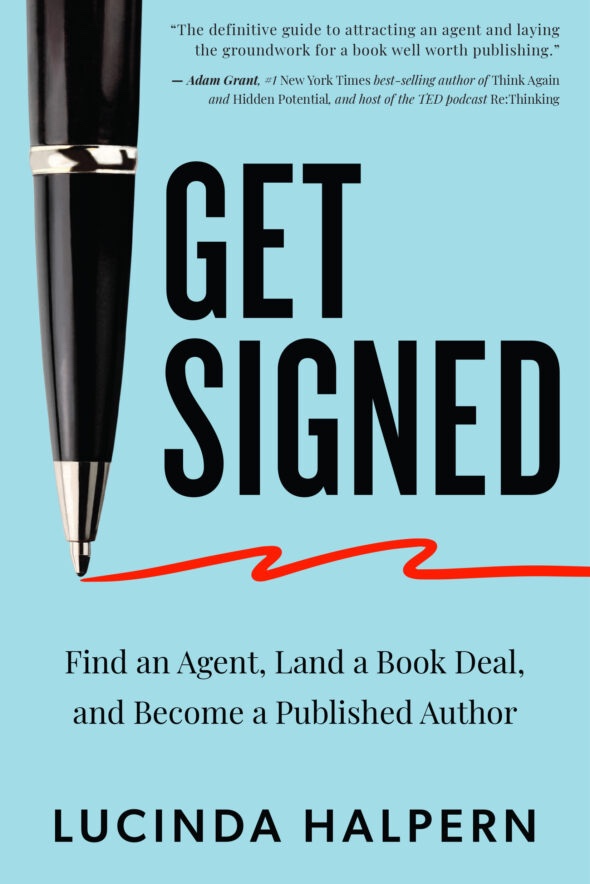Search
How to Use Your Literary Agent
Many writers assume literary agents are most akin to real estate brokers. While there are commonalities, a literary agent’s work can begin well in advance and continue long after the sale. At our agency and others, it’s not uncommon for an agent to collaborate with an author for months to crystallize a book idea, one that will be attractive to the market. And there are a number of ways in which an agent’s consultation continues to be useful once the contract is negotiated, the ink is signed, and the book is underway.
Today we’ll focus on how to use your literary agent once you’ve signed with one—clearing away some cloudiness around the matter to get the most out of your relationship.
Before Your Book is Sold…
 Consult Your Agent on Any Big, Sweeping Editorial Revisions
Consult Your Agent on Any Big, Sweeping Editorial Revisions
You needn’t ask your agent for permission every step of the way; once you’ve come together on the overall concept and arc of the book, there should be a fair amount of trust and room to experiment and finesse as part of the creative process. But if you’ve decided to kill off a major character, change POV, or begin or end your novel differently, check with your agent to make sure you’re on track. For nonfiction, it’s common for writers to find repetition within chapters and then condense them. But if the “big idea” of the book is evolving as you write and edit, you may wish to get a pulse check from your agent.
Get Your Agent’s Opinion on Your Website/Social Profile
If you’re launching or rebranding your website or social media, get your agent’s green light to see that your online presence is aligned with both the book and the audience your book is targeting. Remember that publishers will extensively research prospective authors online before choosing to invest in them.
Once Your Book is Sold…
Involve Your Agent in Key Book Milestones
Our belief is that authors and editors should have direct, creative correspondences—an agent steps in mainly as your “business affairs” person. Before you decide to enlist a coauthor, ghostwriter, or illustrator, ask your agent for perspective and recommendations. If you’re considering a different direction for the length, format, or title of your book, your agent should also be consulted.
Along with a book’s title, cover art is a sensitive, subjective, important decision. Many agents bring a helpful eye and gut check on what is or isn’t working. Plus, feedback to a publisher is always more effective when an agent and author are delivering it together in a unified way.
Let Your Agent Troubleshoot on Certain Matters (Like Payments)
The road from book deal to publication is long and winding. If something goes awry in the relationship with your publisher—for example, you delivered a partial manuscript six weeks ago, but haven’t had any communication from your editor—you can enlist your agent to follow up and get answers. It’s important to remember that an agent is your advocate first and foremost; she works for you, not your publisher. And if you’re late receiving an advance or royalty payment? Your agent should be the one to inquire. (Lucky us!)
Don’t Inundate
While your agent should be involved in the major events of the process, be mindful not to over-email, as this can tire the enthusiasm and energy for your project. It’s best to save all your notes and questions for when you discuss the milestones of the project, and get your agent’s input at once during these periods.
Get Big Picture Ideas and Direction on Your Publicity Campaign
Authors should have a direct and frank relationship with their publicists—the more often authors are directly, but respectfully, in touch with their publicity team, the better the results. However, it’s beneficial for your agent to join the first publicity kick-off call and look at a marketing and media plan to ensure that every avenue is covered. They can also brainstorm any big-picture ideas (as agents are wont to do). Your agent may have freelance publicist recommendations, so don’t hesitate to ask.
While your agent needn’t be copied on every email related to publicity, especially in the earlier months, you can again have her troubleshoot on your behalf if things feel especially quiet or aren’t going to plan. It’s always important for authors to keep perspective: a larger advance and print run signals the level of a publisher’s (and agent’s) investment in results. If you’re published with a smaller house or received a more modest advance but have huge publicity ambitions, you may be better served by an outside publicist, and emailing that outside publicist more regularly, keeping communication to your publisher and agent as efficient as possible.
Your Agent’s Expertise is Limited to Publishing
It’s important to remember that your agent is a publishing professional. For a legal or financial question that impacts your business, you should turn to an attorney or accountant first, not your agent.
If you’re looking for encouragement and guidance through the thrilling yet often opaque terrain of publishing, your agent is always there for you.
If you’re just starting out, explore our beginner resources on Get Signed








